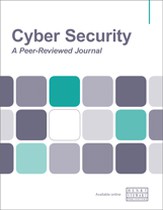Digital contact tracing: Privacy versus efficiency
Abstract
This paper discusses recently introduced digital technology to limit the spread of COVID-19 by tracing patients’ contacts backwards and sending warning of potential exposure to the virus. While the spread of COVID-19 had devastating consequences and certain technology was made available to limit it, quick and broad application was impeded by privacy and security concerns. The paper explores how the current digital contact tracing technology was designed to operate globally and address these concerns. Digital contact tracing has not reached the expected user rates in democratic societies, which limits its impact on public health. The author analyses the connection between privacy, trust and efficiency of the COVID tracing apps and illustrates the conflict whereby privacy-preserving technology denies access to any data and thus lessens the application of the tool for the benefit of public health. The author argues that with additional layers of privacy protection such as rule of law, transparency and democratic oversight, the minimum data necessary for public health would not compromise privacy yet would contribute to improving the technology and lead to better use in crisis situations such as a pandemic, environmental disaster or war. The research paper is a work in progress, as it is based on one-year experience since the outbreak of the COVID-19 virus, when the crisis is not yet over and partial data limits in-depth studies.
The full article is available to subscribers to the journal.
Author's Biography
Ieva Ilves is a consultant to the President of Latvia on digital policy and information technology. Her focus is to build a strong digital Latvia, promoting innovation and growth of technology, while preserving democracy and ensuring human rights and freedoms online. Previously, Ieva was in charge of cyber security policy at the Latvian Ministry of Defence and served as a diplomat in the Ministry of Foreign Affairs and abroad. Ieva spent three years in Silicon Valley to enrich her perspective on the future of technologies, worked for the EU mission in Baku, Azerbaijan and the Latvian delegation at NATO HQ in Brussels. She holds Master’s degrees from the University of Latvia and SAIS programme at Johns Hopkins University, USA. In 2007 Ieva received the state award ‘The Cross of Recognition’ for her contribution in organising the NATO Summit in Riga.
